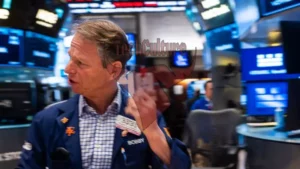German Soccer Club St. Pauli Exits X, Citing Platform’s ‘Hate Machine’ Status
St. Pauli, a prominent German soccer club, has announced its departure from the social media platform X, formerly known as Twitter. The club’s decision comes in response to what it describes as the platform’s transformation into a “hate machine” under Elon Musk’s ownership.
In a bold move, St. Pauli is encouraging its 250,000 followers to migrate to Bluesky, a rival platform backed by former Twitter CEO Jack Dorsey. This shift raises concerns about X’s potential influence on the upcoming German federal elections, drawing parallels to its alleged support for Donald Trump in U.S. elections.
The club’s statement sharply criticizes Musk, accusing him of fostering an environment that amplifies hate, racism, and conspiracy theories. St. Pauli argues that X inadequately addresses insults and threats under the guise of free speech. To underscore its position, the club’s announcement was accompanied by an image opposing right-wing politics.
St. Pauli’s concerns extend beyond social media dynamics to potential impacts on German politics. The club suggests that X may promote authoritarian and right-wing extremist content during the upcoming election campaign, scheduled for February 23 following recent political upheaval.
This move marks St. Pauli as the first top-level German club to exit X in the wake of U.S. election results. They join other notable entities like The Guardian newspaper, which also left X, labeling it a “toxic media platform.”
As alternatives gain traction, Bluesky reports a surge in users, now reaching 15 million, indicating a growing interest in platforms perceived as less controversial.
Despite its exit, St. Pauli plans to leave its past content on X, acknowledging its historical significance while ceasing new postings. This decision reflects a balance between preserving digital history and taking a stand against perceived platform issues.
The club’s departure from X highlights growing concerns about social media’s role in shaping public discourse and political landscapes, potentially influencing future decisions by other organizations and individuals regarding their online presence.





